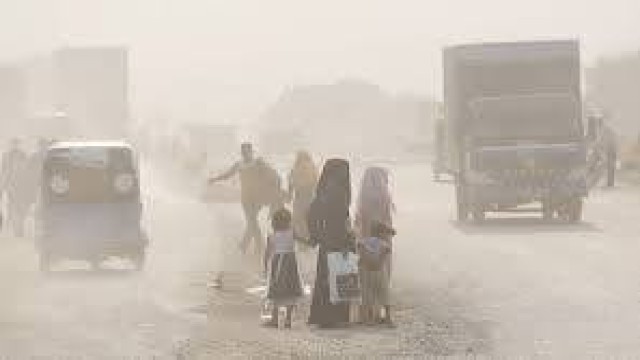Every year, seven million individuals worldwide pass away from air pollution: WHO
At 9:12 a.m. on Saturday, Dhaka, the crowded city of Bangladesh, topped the list of cities worldwide with the poorest air quality once again, with an AQI score of 278.
The ranking of the city for air quality and pollution indicated that the air was'very unhealthy'.
An AQI of 151–200 is deemed "unhealthy," 201-300 is deemed "very unhealthy," and 301–400 is deemed "hazardous," presenting serious health hazards to the local population.
Shanghai, China, and Kolkata and Delhi, India, came in second, third, and fourth on the list, respectively, with AQI scores of 199, 198, and 189.
People may find out how clean or dirty a city's air is, as well as any potential health risks, by using the Air Quality Index (AQI), a daily reporting tool.
Particulate matter (PM10 and PM2.5), NO2, CO, SO2, and ozone are the five pollutants that make up Bangladesh's Air Quality Index (AQI).
Air pollution has always been a problem in Dhaka. Usually, the winter months bring on unhealthy air quality, which then improves during the monsoon.
The World Health Organisation (WHO) estimates that air pollution kills seven million people globally annually, mostly as a result of higher mortality rates from heart disease, stroke, lung cancer, chronic obstructive pulmonary disease, and acute respiratory infections.































Comment: